In Edith Wharton's poignant novella, "The Triumph of Night," readers are enveloped in the intricacies of social dynamics and the profound depths of human emotion. Set against the backdrop of an exquisitely detailed early 20th-century America, Wharton's literary style seamlessly marries realism with a subtle poeticism. Through her meticulous prose and keen psychological insights, she delves into themes of aging, loss, and the pursuit of fulfillment, crafting a narrative that unveils the fragility of personal aspirations amidst societal constraints. Edith Wharton, an esteemed novelist and the first woman to win the Pulitzer Prize for Fiction, drew inspiration from her privileged upbringing in New York, coupled with her acute awareness of the rigid social structures of her time. Her extensive literary career encompassed a deep exploration of the human condition, particularly the struggles of women in a patriarchal society. "The Triumph of Night" reflects Wharton's own contemplations on mortality and the inevitability of change, shaped by her experiences and observations as she navigated the complexities of elite society. This novella is not only a significant addition to Wharton's oeuvre but also an essential exploration of inner lives often overlooked in early 20th-century literature. For readers who revel in psychological depth and social commentary, "The Triumph of Night" offers a compelling meditation on hope and despair, making it a must-read for those seeking to understand the nuances of human experience.

The Age of Innocence
Edith Wharton
book
The Greatest Historical Romances of All Time : 70 Books Collection
Charlotte Brontë, Anne Brontë, Emily Brontë, Henry James, Samuel Richardson, Jane Austen, Guy de Maupassant, Thomas Hardy, Bernardin de Saint-Pierre, Edith Wharton, Maria Edgeworth, Henry Fielding, Anthony Trollope, Alexandre Dumas, Mary Wollstonecraft, Louis Hémon, Nathaniel Hawthorne, William Makepeace Thackeray, Grace Livingston Hill, Gilbert Parker, Fanny Fern, Georg Ebers, Fanny Burney, Georgette Heyer, Mary Hays, Robert Williams Buchanan, Mary Angela Dickens, A. E. W. Mason, W. Somerset Maugham, Madame de La Fayette, F. Scott Fitzgerald, D. K. Broster, Sabine Baring-Gould, Eliza Haywood, Leo Tolstoy, Catharine Trotter Cockburn, Lady Sydney Morgan, Pierre Choderlos de Laclos, Mrs. Olifant, María Ruiz de Burton, Lady Charlotte Bury, Philip Meadows Taylor
book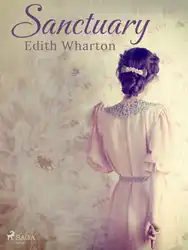
Sanctuary
Edith Wharton
book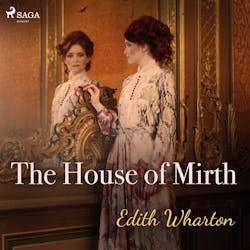
The House of Mirth
Edith Wharton
audiobookbook
Summer
Edith Wharton
audiobookbook
Sanctuary
Edith Wharton
audiobookbook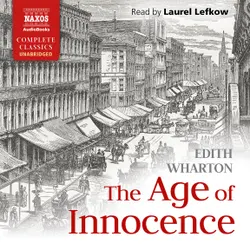
The Age of Innocence
Edith Wharton
audiobook
The Age of Innocence :
Edith Wharton
audiobook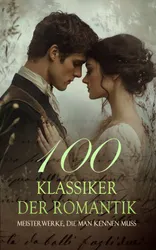
100 Klassiker der Romantik - Meisterwerke, die man kennen muss
Jane Austen, Louisa May Alcott, D. H. Lawrence, Fjodor Dostojewski, William Shakespeare, Hedwig Courths-Mahler, Frances Burney, Charlotte Brontë, Alexandre Dumas, Margaret Mitchell, Charles Dickens, L. M. Montgomery, Eugenie Marlitt, Wilhelmine Heimburg, Elisabeth Bürstenbinder, Stendhal, Johann Wolfgang von Goethe, Walter Scott, Guy de Maupassant, Victor Hugo, George Sand, Leo Tolstoi, Gabriele D'Annunzio, Rudyard Kipling, Gustave Flaubert, Nathaniel Hawthorne, Jean Jacques Rousseau, Bernardin de Saint-Pierre, F. Scott Fitzgerald, Prosper Mérimée, Edith Wharton, Lena Christ, François-René de Chateaubriand, Stefan Zweig, Alexander Sergejewitsch Puschkin, Ida Boy-Ed, Arthur Schnitzler, Anatole France, Johanna Spyri, George Eliot, Gaston Leroux, Nataly von Eschstruth, Gottfried von Straßburg, Sophie Mereau, Caroline von Wolzogen, Benedikte Naubert, Henry De Vere Stacpoole, Levin Schücking
book
The Age of Innocence : A Timeless Tale of Love, Sacrifice, and Society's Expectations
Edith Wharton, Zenith Blue Ridge Books
book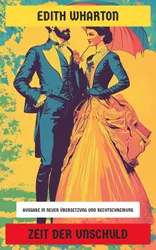
Zeit der Unschuld : Ausgabe in neuer Übersetzung und Rechtschreibung
Edith Wharton
book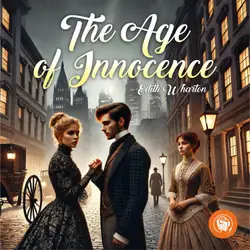
The Age of Innocence
Edith Wharton
audiobookbook
